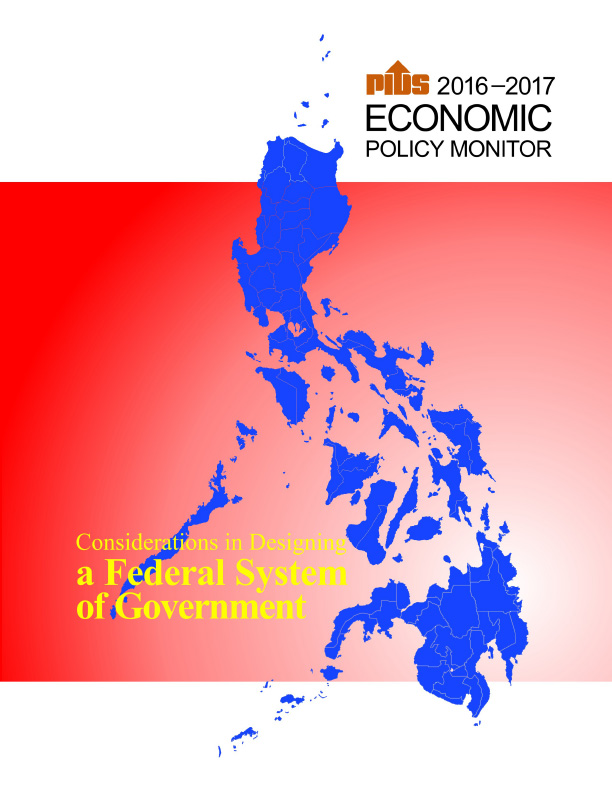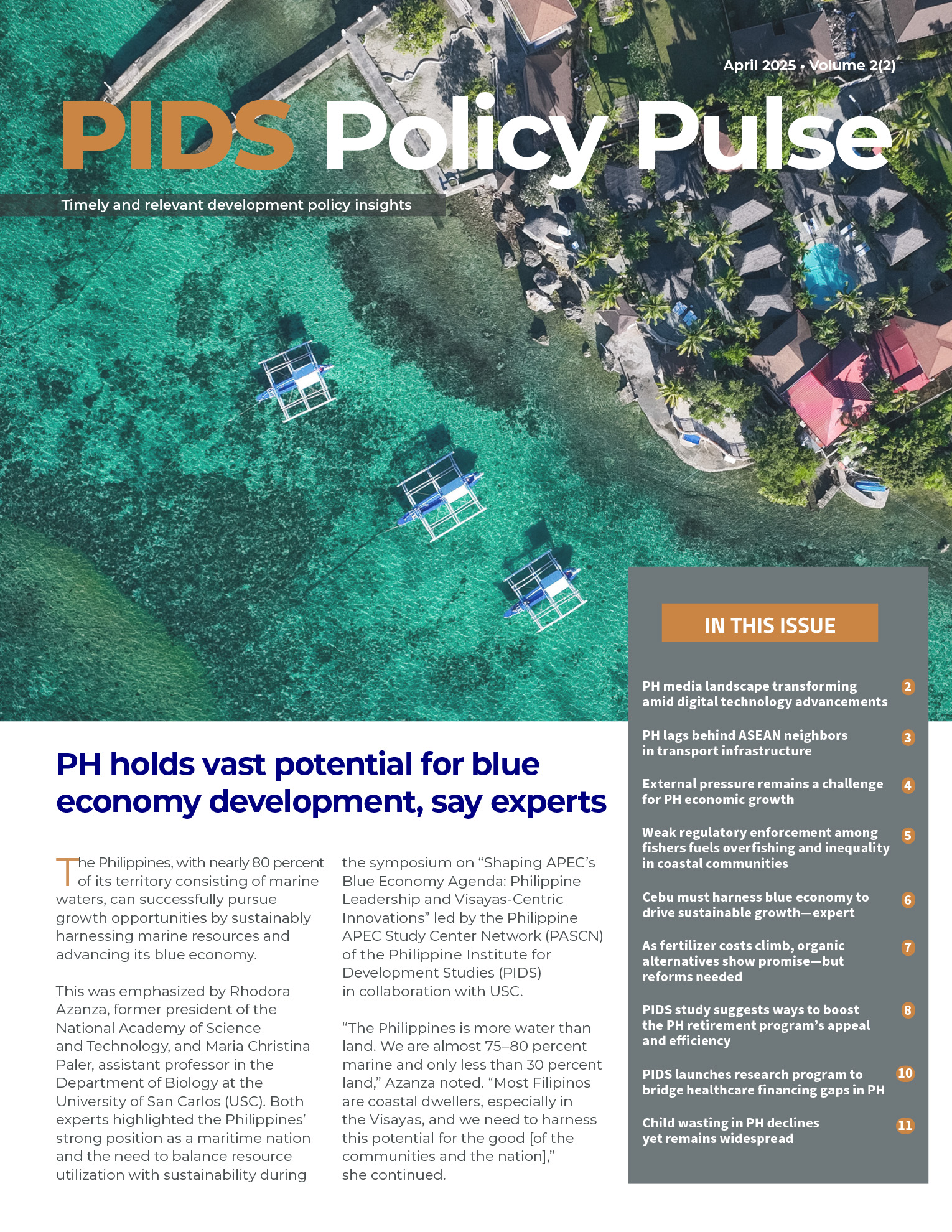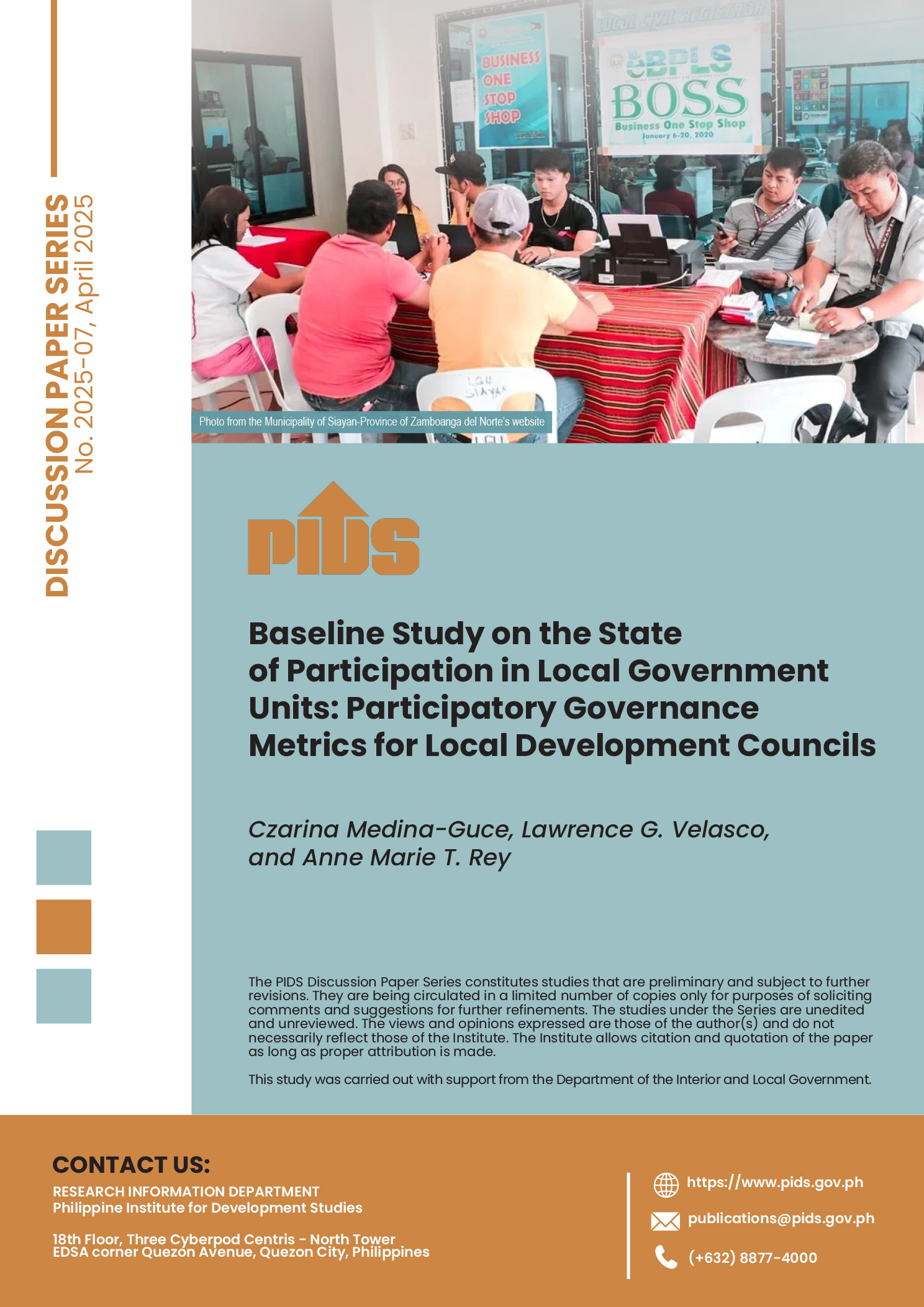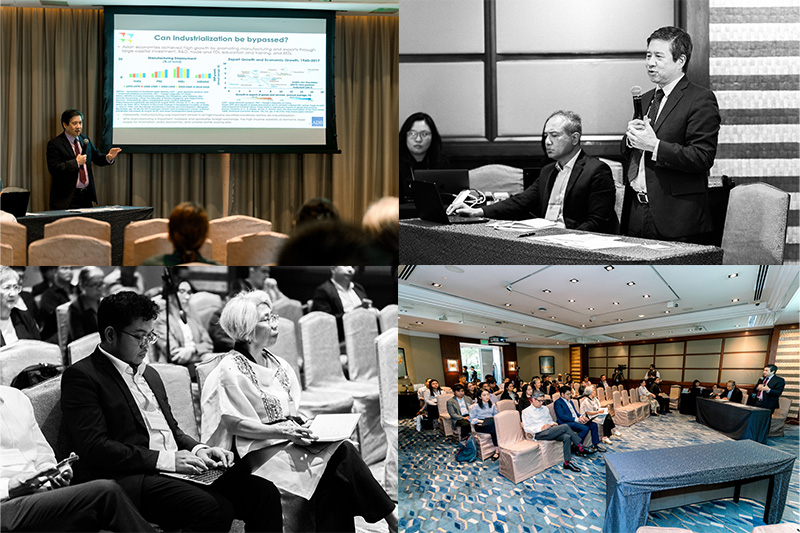The 2016–2017 Economic Policy Monitor highlights the fiscal design aspect of the Philippines' proposed shift to a federal system of government. It particularly focuses on the assignment of expenditure responsibilities across levels of government. Among others, it argues that clarity in the assignment of functional responsibilities is critical if clean lines of accountability are to be established. Further, it assesses the additional cost involved in the adoption of said constitutional reform such as the salaries of officials and staff as well as operating expense of the regional governments, and the legislative and judiciary branches. The issue also looks at the growth of the country's gross domestic product despite changing political and economic landscapes. It also provides policy updates in the fields of health, education, gender, housing, agriculture, natural resources, and trade.













